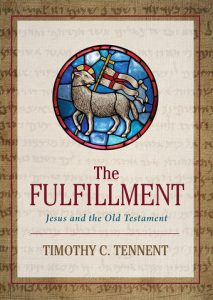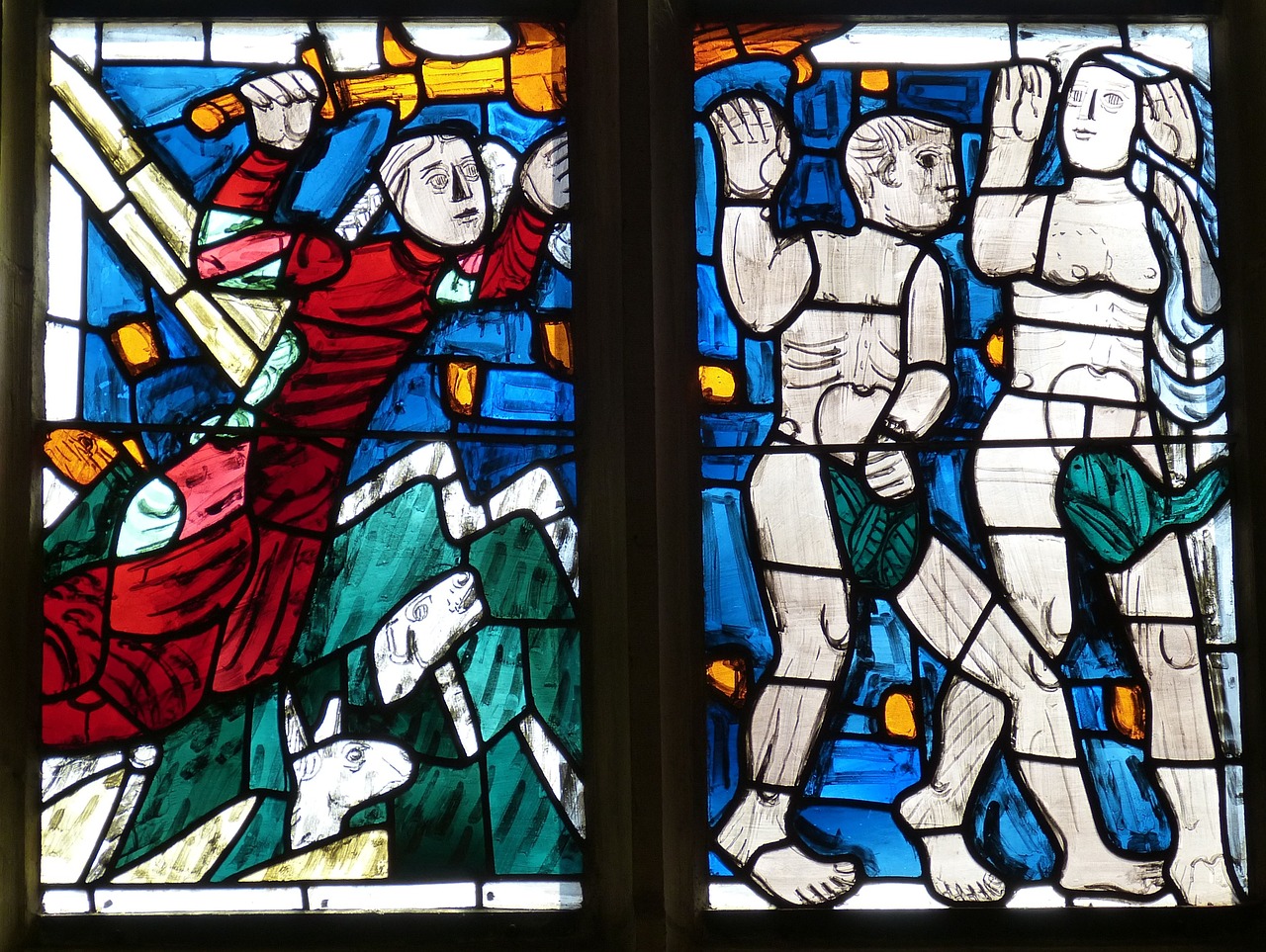The opening chapters of Genesis teach us that we are hopelessly broken, and no human power can put us back together again. In Adam, we have all rebelled, partaken of the anti-sacrament, severed our relationship with God, and yelled in his face, “Not Your will, but mine be done!” Paul reminded us of this connection with Adam when he said, “Sin entered the world through one man, and death through sin, and in this way death came to all men, because all sinned” (5:12). Adam, unlike us, did not have a tendency toward sin, and through a real choice, he chose to become a sinner. In that act, he was a representative man whose actions had consequences for the entire race. We, on the other hand, do not have the capacity to live a life apart from sin. We are born sinners, and we sin as a natural outgrowth of our sin nature.
How Adam’s Sin Affects All
The central question, then, is: How did Adam’s sin make us sinners? What is the relationship between Adam’s sin and our condemnation? You may think it’s not fair that Adam’s choices, thousands of years ago, are affecting you now. You may wish to be your own Adam or Eve, to be free of the connection we share with those first human beings. After all, it’s just not fair. Be careful, though, because Paul is laying the groundwork for a very important doctrine in the Bible: that of vicarious action, something done on your behalf apart from your initiative. If you cannot be connected to Adam and his choices thousands of years ago, then you can also have no part in the actions of Jesus Christ, who also lived thousands of years ago and did things on your behalf, just as Adam did. The knife cuts both ways.
Verse 12 says that sin entered the world and death through sin because all sinned. Through Adam, sin entered the world, and death (both physical and spiritual) is the greatest emblem of sin. When Paul said “because all sinned,” however, he was not saying that death comes to all because we have all subsequently sinned as the generations have unfolded. It is true that we have all sinned and confirmed Adam’s choice to be part of the rebellion, but what Paul meant is that we all sinned in Adam. In other words, you were there in the garden and sinned with Adam. This is a hard doctrine for modern people, especially Americans, who do not have a very strong sense of how we are connected to one another or to past generations. The Bible, on the other hand, presents the concept that you are not just an individual; inside of your loins reside all the future generations, or progeny, who will come forth from you. When Adam sinned, the Bible teaches that you were present in the body, or the loins, of Adam. In that way, we actually participated in the sin of Adam.
You Are Here
If you’ve ever gone shopping in a large mall and referred to the maps that show the whole scheme of the mall, you must have noticed that in one spot on the map is a small, helpful sign that reads, “You are here.” Without it, you could not orient yourself in relation to the full map. When you read this account of Adam and Eve, you should notice that the Bible puts a little sign there, reading, “You are here.” When Adam and Eve take the fruit and eat of the antisacrament, you are here. When they shout at God, “Not Your will, but mine be done,” you are here. In one fell swoop, Satan got the whole human race to disobey God.
What’s more, we have all confirmed Adam’s sin in our own lives, choosing our own will every day over the will of God. As Augustine said, “We are sinners by birth and by choice.” How can the human race be rescued out of the rebellion and avoid inevitable condemnation when, without exception, everyone is bound to become a part of it? The only way is to bring another Adam into the world, someone who will once again have the choice to obey or disobey, but this time will get it right. We have to find a way to go back and rewrite that first chapter of the human story. But how is that possible? God knows that the whole human race is ineligible, so it couldn’t be an inside job. What if He did an outside job, a rebooting of the whole system, a radical entrance of God Himself into the story of human history? He had to find a way to enter the human race in an abnormal way that would not pass on the sin nature, and yet would still be fully human. So Christ was born of a virgin into the human race as the second Adam.
How Christ’s Atonement Affects All
Satan tried desperately to tempt Jesus, but at every point of assault, Jesus, unlike Adam, chose to obey God, to reject the forces of the rebellion, to live without sin. He had the capacity as the God-Man to sin or not to sin; He could have chosen to disobey the Father, but He didn’t. If we trust in Christ, then by the same vicariousness by which we were implicated in Adam’s sin, we are now implicated in Christ’s obedience. We are now part of a new race of redeemed humanity, headed by Christ, rather than the old race condemned under Adam. As Romans 5:19 says, “For just as through the disobedience of the one man the many were made sinners, so also through the obedience of the one man the many will be made righteous.” The first Adam committed one sin and brought judgment on the whole human race. The second Adam bore millions of acts of rebellion in His body on the cross, but was able to offer a way out by providing a perfect atoning sacrifice.
Before, when we read the story of Adam and his rebellion against God, we saw the sign reading, “You are here.” Now, as followers of Christ, when we read the account of the fall, that little sign isn’t there. Instead, as we flip through the pages of the New Testament, we find that sign again and again throughout the life of Jesus. When Jesus is tempted in the desert and declares that He will love the Lord God and serve Him only, you are here. When Christ confronts the demonic world, exercising authority over the rebellion, you are here. You are in Christ as He obeyed, just as you were once in Adam as he disobeyed! In every situation where the first Adam disobeyed, the second Adam obeyed. Whenever the first Adam said no to God, this Adam said yes. In Christ, the entire history of the human race is being rewritten, and now we can turn the clock back and get it right.
The final test culminates in the garden of Gethsemane. The whole thing started in the garden of Eden, and now here we are in another garden, facing the same question of obedience. After a lifetime of choosing the Father’s will above His own, is Jesus prepared to choose God’s will in this final test? Is He ready to take upon Himself the sins of the whole world, to suffer separation from His Father, to bear the wrath of God for all the sins of humanity from Adam until the end of time? This is the most intense moment of human history; the decision of Jesus at this very moment, on His knees, sweating blood, and crying out to God, holds the whole fate of the human race in the balance. Finally, Jesus says the words that have changed the world: “Not My will, but Yours be done.” In that moment, Jesus reverses the motto of the rebellion and turns the tables on all the powers of evil. And yes, there is a little sign there that reads, “You are here!” Man’s great “no” of rebellion is being swallowed up in Christ’s great “yes” of obedience.
As we continue to watch the unfolding story, we see Jesus Christ suffer the full judgment of God and cry out, as the sky grows dark and the earth splits open, “My God, My God, why have You forsaken Me?” We want to scream out, “It’s not fair!” It’s not fair for this innocent man who never sinned to suffer like this. It’s not fair for the Son of God to experience the judgment that we deserved. No, it’s not fair—praise God! This is grace. This is the Christian gospel. No one has ever loved like this or made choices like this before, and yet through our veil of tears, we see at the cross the little sign reading, “You are here.” By God’s grace, we can be in Christ just as we used to be in Adam. Everyone must decide whose headship they are under: that of the rebellion in Adam, or that of obedience in Christ. A new way has been purchased by the blood of God’s only Son, a way to escape the curse of the first Adam. Praise be to God for His indescribable gift!
Adam, as we share your nature, like you we stand bound in sin;
Jesus, now our second Adam—new creation you begin!
—
 Enjoy this entry? Grab The Fulfillment: Jesus and the Old Testament by Timothy Tennent from our store.
Enjoy this entry? Grab The Fulfillment: Jesus and the Old Testament by Timothy Tennent from our store.
In these pages you’ll:
- Appreciate how Jesus offers continuity between the Old and New Testaments
- Learn the major figures and themes of the Old Testament
- Deepen your devotion to and worship of Jesus
—
Explore more seeds: We have an entire series of articles that works through 30 core questions about the Bible and Christian doctrine; watch a series of Seven Minute Seminary videos by Craig Keener on Jesus, the Temple, and the Old Testament; explore seven major Old Testament prophecies that Jesus fulfills as the Messiah; Christopher Peters writes on the basic question of whether we need the Old Testament; Ben Witherington helps us understand how the New Testament relates to and uses the Old Testament in textual quotations and allusions.
Image attribution: sedmak / Thinkstock




2 Responses
If Jesus doesn’t save everyone in the way Adam condemned everyone, Adam’s sin is still more powerful than Jesus.
Finally, Someone Get it!!!!